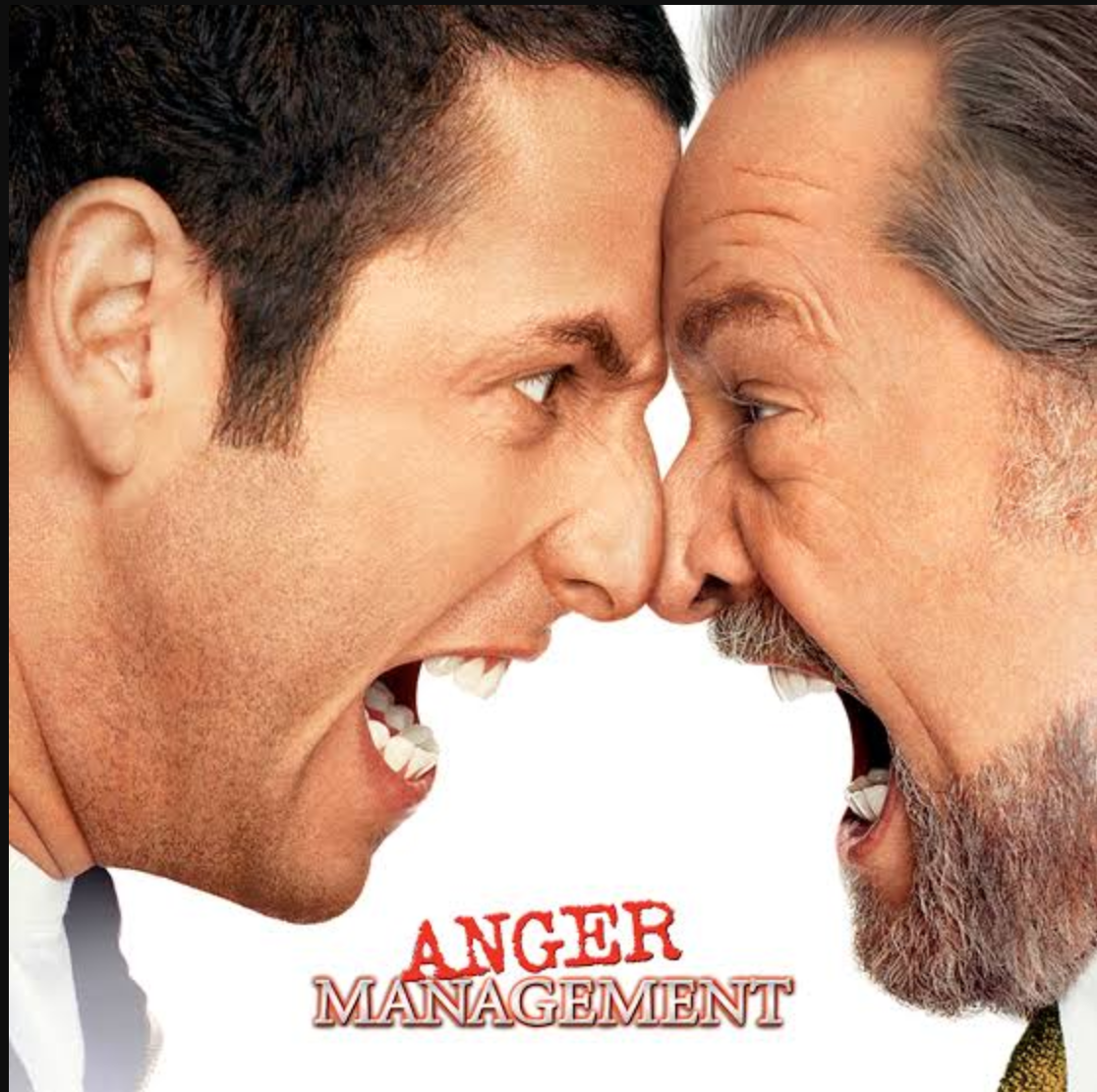Anxiety, Parenting, and What Actually Helps
Real world reflections from the clinic, the home, and everywhere in between
When You Have Nothing Left In The Tank And Your Kid Still Needs You

I am tired.
I took a break.
And now I’m back… sort of.
I’m writing because I feel like I should because I don’t want to disappear on you. TBH writing is also therapy for me.
It’s been a horrendous year, professionally.
I can’t go into details for reasons I will reveal when I am able.
But the point of this is not the year I’ve had.
The point is something I’ve been thinking about a lot because of the past few years:
How do you parent when you’ve got nothing left in the tank?
I work with parents all the time, and many of you think you’re failing. You’re not. And honestly, if you weren’t tired, I’d be more worried.
When I get home at the end of the day, I’ve usually got the cognitive power of a damp towel. And that is usually when my kids / family need me the most.
Here is what I’ve learned from my own low-battery parenting:
1. You don’t need to be impressive.
Kids don’t need the polished version of you. They need the “I’m here” version.
2. Say the honest thing.
Try something l...
When Exam Season Hits, Stay Calm and Carry On

Exams are looming, and for many families, it can feel like you're living in a pressure cooker.
We parents often feel like we're sitting the exam too.
We don't get the glory, just the stress headaches and the privilege of trying to stay calm while the young ones are panicking.
So, how can we navigate this season without burning out or blowing up?
Here are some ideas and concepts that might help you out.
First, let's dispel the Myth of Pressure and Performance...
We often believe we must put pressure on our kids to perform at their best. This idea, is a powerful myth. When stress tips into anxiety, something fundamental shifts in the brain. The prefrontal cortex, the part responsible for logic and problem solving, takes a backseat. The amygdala, our brain's alarm system, takes the wheel. All that well meaning pressure can actually hijack a child’s ability to think clearly.
They already feel enough pressure from the outside world; they don’t need it from the one place that s
...I'm not parenting. I'm surviving; and it feels like crap
If you're raising an anxious or sensitive child, some days don't feel like parenting at all.
The constant never ending to do list ticking. Does anyone notice?
You love your kids fiercely but you're running on empty. And don't get me started on the guilt.
Perhaps you're snapping at the smallest things or maybe you're withdrawing and hiding because you simply feel tapped out.
Sometimes you move through the day on autopilot, doing all the tasks without really being there. Your body is here but inside you feel numb.
Your nervous system is trying to cope with constant stress, like a phone on low-power mode.
Screenshot. Credit. Survivor, reality TV show.
Small, consistent shifts can help you come back online. And feel like you're able to connect again with your kids.
Try this.
-
Name it. Call it out. e.g."I'm on autopilot right now," or "I feel numb," brings awareness without judgement. Simple observation can be the first step to shifting out of it.
-
Lower the bar. I...
Beyond “Just Be Consistent”: Real-Life Strategies for Parenting Anxious Kids

You’ve probably heard the advice before.
“Stay calm.”
“Be consistent.”
It sounds so simple… until you’re in the middle of your child’s emotional storm.
These kinds of tips aren’t incorrect. Staying calm is important, but it's not always possible because our own stress systems get activated. The fight/flight/fawn thing...BUT consistency of approach does matter in the end, which I'll elaborate upon, below.
 Adam Sandler and Jack Nicholson in the 2003 film "Anger Management"
Adam Sandler and Jack Nicholson in the 2003 film "Anger Management"
When things don't work out after we've tried to 'stay calm' or 'be consistent' whatever that means; it can leave us feeling deflated. Perhaps we feel we're not cut out for this.
Hark! perfection doesn’t exist in parenting. But connection does. And connection can survive the messy bits. But what does this mean Davin?
Ok. First understand these things.
-
You’ll have moments when you don’t “stay calm”. It's not realistic to be calm all the time, but we have to consistently show our kids how we get...
Parents on Trial! When Your Kid Thinks You’re Omnipotent (And the Trial Starts at 6:45 a.m.)

A couple of days ago, I was abruptly woken up by my 10-year-old daughter screaming, “Where’s my wallet?” at the top of her lungs.
Now, a 10-year-old with a wallet is already a curious situation. She doesn’t really need one and I knew we hadn’t taken it overseas with us on our recent trip. I vaguely remembered having a conversation about it a while back. But none of that mattered in that moment.
I was still lying horizontal, dazed, dragging my brain out of sleep, barely holding on to consciousness. My heart started racing because I could tell she was already halfway into meltdown territory.
I didn’t have an immediate answer. I was confused and slow to respond. And that silence felt like the prosecution in a courtroom waiting for my expert opinion.
Then she stormed out, shouting, “I hate you!”
Annoying? Yes. Hurtful? Sure. But I reflected later. The dynamic beneath the surface, the way kids assume parents are all-knowing, like omnipotent beings who must have all the answers instantl...
Stop Saying 'Calm Down': 5 Phrases That Actually Help Your Anxious Child
I am quite sure, we have all been there.
***crickets***
Ok. Just me?...

Your child is in the midst of an emotional storm. You know the picture: tears streaming, heart racing, completely overwhelmed by whatever; anxiety has taken hold.
In that moment of desperation, the words "calm down" slip from our lips almost automatically.
Seems logical, doesn't it? If they could just calm down, everything would be better? If only they would just...just...
Thing is. Telling an anxious child to "calm down" is not only unhelpful it can actually make things worse. And we know this. Yes, in the heat of the moment, we fall into the same trap...
Before I show you how to avoid it.
Why "Calm Down" Doesn't Work
When we tell a child to calm down, we're essentially asking them to do something they literally cannot do in that moment.
An anxious child's nervous system is in full activation mode.
Their brain has detected a threat (real or perceived) and flooded their system with stress hormones.
...When Anxiety Masquerades as Misbehaviour: Seeing Beyond Surface Behaviours
We've all been there.
You wake up. It might be a smooth morning, but everything inside you wants to stay horizontal. You've got the responsibilities, the commitments...job, partner, house stuff, children and then there's all that self-care stuff you're supposed to do too, right?
You steel yourself and start your day, praying it goes according to plan.
Then your anxious, emotionally sensitive child refuses to get dressed for school, throws a tantrum over seemingly nothing, or suddenly becomes defiant. This is definitely not smooth sailing.
You know how it goes... Your first instinct might be to address what appears to be misbehaviour. After all, they're making life more difficult than it needs to be.
But here's the thing: that's not really what's happening.
The Hidden Truth About "Difficult" Behaviour
Every behaviour stems from a complex combination of environment, genetics, personality, temperament, and context. There are layers beneath what we see on the surface. The challenge ...
We Don't Need to Escape Our Lives (We Just Need to Be in Them)

It's been 1 week since my family and I returned from France.
Six weeks of 24/7 togetherness, wandering through places that felt like stepping into a dream.
*That photo at the top there: Mont St Michel rising out of the mist was just surreal.
When I walked back into my office this week, something felt off. Not the usual post-holiday blues or the lingering wish to be back sipping coffee in a French café (though I do think I'll retire there someday). No, this was something deeper. Something I recognised immediately.

Slow coffee today in Annecy
The familiar tension had returned to my chest. That uneasy feeling I wake up with most mornings. My old companion: anxiety.
As a psychiatrist, I see anxiety every day.
In the children and adults who sit across from me, fidgeting with worry that feels too big for their small bodies. In the parents who bring them, carrying their own invisible loads of fear about getting it all wrong. I understand them because I am them.
I've alway...
Beyond Meltdowns: New Ways to Support Anxious Children
Parenting is tough, especially when familiar ways of handling children's behaviour just don't work anymore. You try to stay calm, give them space, and do all the things you know should help. Yet, your child might still panic, withdraw, get angry, or dig their heels in. This isn't because you're doing something wrong or your child is difficult. Often, our usual methods don't quite line up with what's going on for our children when they're feeling anxious or overwhelmed. In those moments, their nervous system isn't after logic; it's desperate for safety.
A Different Approach for Astute Parents
The biggest change comes from a fresh take on how you parent – a shift in your thinking:
- Be the steady presence when your child's world feels wobbly.
- Ask "What's hard for them right now?" instead of focusing on "Why are they behaving this way?"
- Build connection first (before trying to sort things out) because learning only happens when the alarm bells have stopped ringing in their heads. ...
Parenting While Tired
There’s a version of parenting most people don’t talk about.
It doesn’t involve craft kits, gentle voices, or planned teachable moments. It’s not something you’d record for family videos. It’s the one that happens when you’re too tired to be the parent you thought you would be.
You’re getting through the day, but everything feels heavier than it should. You’re making decisions on autopilot. You’re responding with silence, because finding words feels like a task.
Your child still needs you. And that’s the part that stings a bit. Not because you don’t care, but because you do.
This version of parenting asks a different kind of effort. One that doesn’t rely on energy. One that works even when you’re flat.
Here are a few things that help.
Lower the bar
Not permanently. Just for now. Some days will not match your ideals. Trying to meet yesterday’s standard with today’s energy is a fast way to lose your footing. Choose something simpler. A meal. A kind tone. A door closed gently. Let t...


